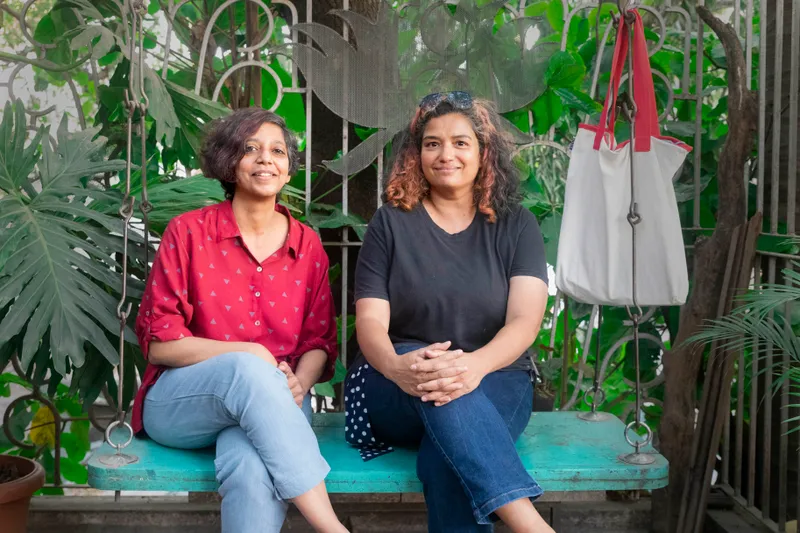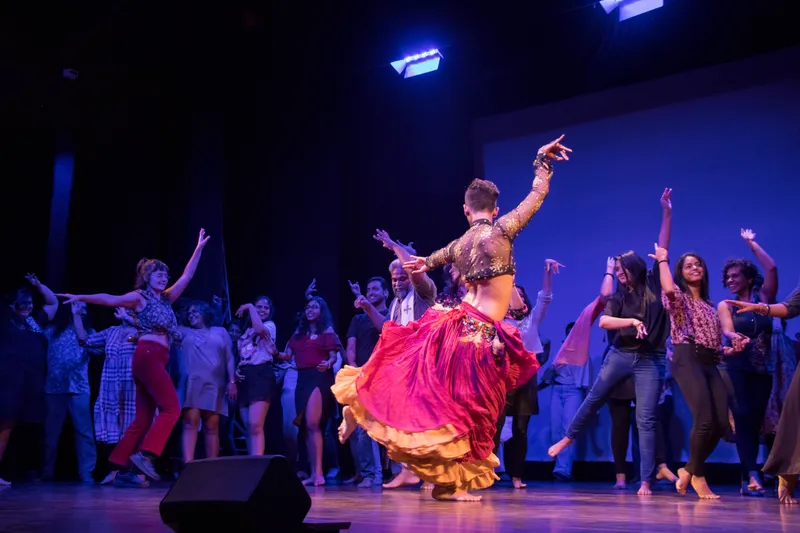Meet Sandbox Collective that’s bringing art to your neighbourhood
The Sandbox Collective is a women-led, feminist art organisation started by Nimi Ravindran and Shiva Pathak, which works at the intersection of art and gender.
Nimi Ravindran and Shiva Pathak met in 2003 when a common friend directed them in a play in Bengaluru. Their shared passion for theatre soon grew into a lasting friendship.
From attending shows and being in the same social circles to co-creating a theatre festival called The Great Galata for the community—their bond grew much stronger.
After running the festival for three years, the duo decided to close it but wanted to continue collaborating. They started the Sandbox Collective in 2013 to tackle the challenges facing the arts, especially with the lack of infrastructure and the need for creative organisations led by women and producers.
“We wanted to create an organisation that would provide the infrastructure we hadn’t had as artists and collaborate with others,” Ravindran tells SocialStory.
The Sandbox Collective is a women-led, feminist art organisation, which works at the intersection of art and gender. This collective of artists also works as arts administrators.
A 2016 ATSA fellow, Pathak has over 20 years of experience in the arts, and she serves on the board of Toto Funds the Arts, which supports young Indian artists. Ravindran has two decades of experience as a writer, teacher, and theatremaker. She also holds a senior fellowship in theatre.

Shiva Pathak (left) and Nimi Ravindran (right)
Bringing art and gender together
The Sandbox Collective began with a small initiative called home theatre, where they performed everywhere—be it a small cafe, homes, terraces, and offices among other spaces.
“We would perform in living rooms that were 12 ft by 12 ft, we’d take a bit of space to perform and have as few as 10-15 or as many as 70-90 people as part of the audience. If people wouldn't go to the theatre, we were happy to take the theatre to them,” Ravindran explains.
In their first year, the collective managed more than 120 performances. These were not ticketed shows; the performances were free and open to all. Rather, they asked audiences to contribute what they could afford.
“We believe everyone should have access to the arts, not just people who can pay for it because we wanted to build new audiences for performances. The idea was to make the arts an integral part of our lives; not something that was exclusive or alienating,” she adds.
Within a couple of months, for artists from across India who wanted to perform in Bengaluru, Sandbox was instrumental in showcasing their works across venues.
Emphasising the importance of community art spaces, the duo also opened Studio 345 in January 2024 in Bengaluru, where it hosts workshops and events centred around language, gender, books, and literature.

The Feminist Library
The studio also has a permanent feminist library, open for four days a week. Initially, the library only featured works by women or queer individuals.
“We started with the feminist library in a pop-up version, where our entire collection featured books written by women and queer voices only. Over time, however, we realised the importance of more diverse voices. The library, now, has a broader range of feminist voices, including anti-caste books, besides a growing collection of regional literature, making it more inclusive of diverse perspectives,” she adds.
Recently, the studio hosted many artists and authors to engage the community on social and gender issues. Among them, Indu Harikumar, an artist, author, and educator, shared her journey of collecting stories of intimacy, consent, violence and pleasure.
It also hosted Rachita Taneja (Sanitary Panels on Instagram), a political cartoonist who often addresses topics like fascism, misogyny, and queer rights.
Social activist, author, and a key figure behind the RTI Act, Aruna Roy, talked about her journey in social activism and her book, The Personal is Political.
The studio has also hosted a talk by author and translator Arshia Sattar, who discussed translating texts like the Ramayana from a feminist perspective.
Sandbox has also organised a queer reading party featuring children's picture books, open to both adults and kids. Additionally, visual artist Aakriti Chandervanshi led a two-day photography workshop at Studio 345.
Theatre focus
In 2015, Ravindran and Pathak realised that Indian theatres don’t have many women directors or playwrights; these roles were predominately occupied by men.
They also realised there were no prominent arts and gender festivals in India, which led them to start an annual festival, Gender Bender.
“If someone is making a play about women, where do they go to show it? We thought, let’s create a space for people working at the intersection of art and gender,” she explains.

Gender Bender Festival (Credit - Falana Films)
Gender Bender works through an open call where anyone can apply. Around 10 grantees receive a grant and The festival also showcases a curated section featuring performances, exhibitions, panel discussions, workshops and conversations around gender and the arts, besides The Feminist Library.
“For four or five days—from morning till evening—it becomes a one-stop gender arts festival—a space for celebration, where various activities take place, and everything is open and free for all,” she says.
Sandbox Collective curates Gender Bender in collaboration with the Goethe-Institut / Max Mueller Bhavan Bengaluru. This year's Gender Bender will be held from November 22 to 24 and November 27 to 30 in Bengaluru.
Edited by Suman Singh







